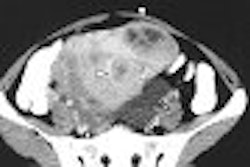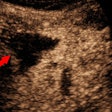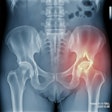Participating in the American Institute of Ultrasound in Medicine's (AIUM) voluntary accreditation program can improve performance, according to research published in the August issue of the Journal of Ultrasound in Medicine.
"Our study shows that ultrasound accreditation adds value to the practice by improving compliance with AIUM minimum standards and guidelines for the performance of ultrasound examinations, which should translate into an enhancement of the quality of ultrasound practice," wrote a study team from Eastern Virginia Medical School in Norfolk, VA; Harvard Medical School in Boston; and the AIUM (JUM, August 2004, Vol. 23:8, pp. 1023-1029).
The researchers sought to gauge the effectiveness of the society's accreditation program, which aims to improve compliance with standards and guidelines for performing obstetric and gynecologic ultrasound.
The researchers compared the scores of ultrasound cases submitted by practices at the initial accreditation application with those of cases submitted during their reaccreditation application three years later. The cases were selected randomly from consecutive applications.
A second list of applications that recently completed first-time accreditation was also reviewed as a control group.
For the first group of 82 practices, the median improvement in scores for all obstetric cases was 5.25 points between accreditation and reaccreditation, and 5.38 points for the gynecologic cases.
Of these 82 practices, 57.3% successfully met accreditation requirements with their obstetric case studies, compared to 86.6% during the reaccreditation process. For gynecologic accreditation, 61.4% of practices successfully earned accreditation during their first application, compared to 91.9% during reaccreditation.
Of the 32 practices that didn't meet accreditation requirements with the submitted obstetric scores of the initial accreditation, 23 (78.1%) met the requirements with the submitted scores of their reaccreditation applications.
To account for the element of time, the researchers also compared the reaccreditation results with the recent initial accreditation results of the control group. They found no significant difference between the groups in the proportion of applications whose scores successfully met the AIUM requirements for accreditation.
The median reaccreditation scores also were found to be significantly higher for all individual obstetric case studies, as were the scores of the average ob/gyn case studies.
In addition, 86.6% of the practices seeking reaccreditation successfully met the AIUM requirements for obstetric accreditation, compared to 68.8% of the control group; 91.9% of the practices seeking reaccreditation met the requirements for gynecologic accreditation, compared to 64.4% of the control group.
"Our findings suggest that the AIUM accreditation program is meeting its goal to improve ultrasound practice patterns," the authors wrote.
By Erik L. Ridley
AuntMinnie.com staff writer
August 19, 2004
Related Reading
Ultrasound education goes global, June 29, 2004
Copyright © 2004 AuntMinnie.com




















